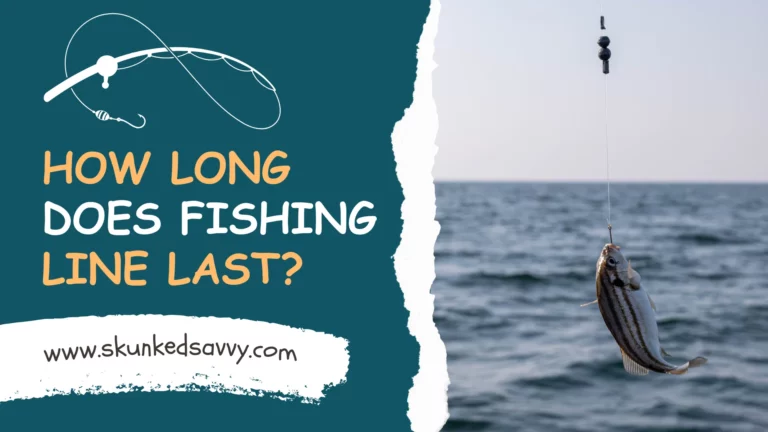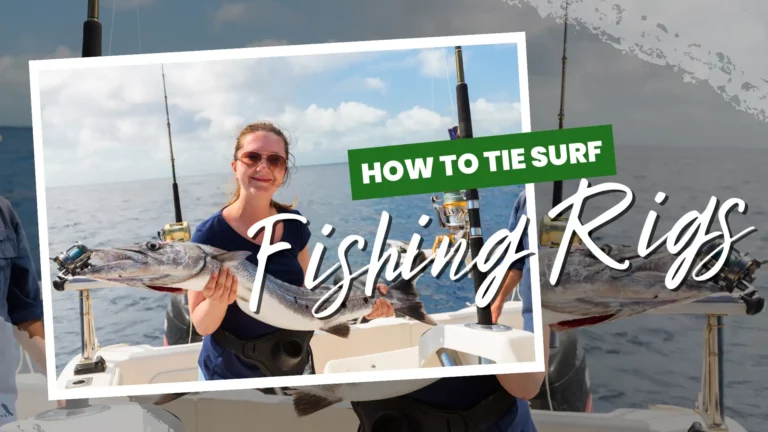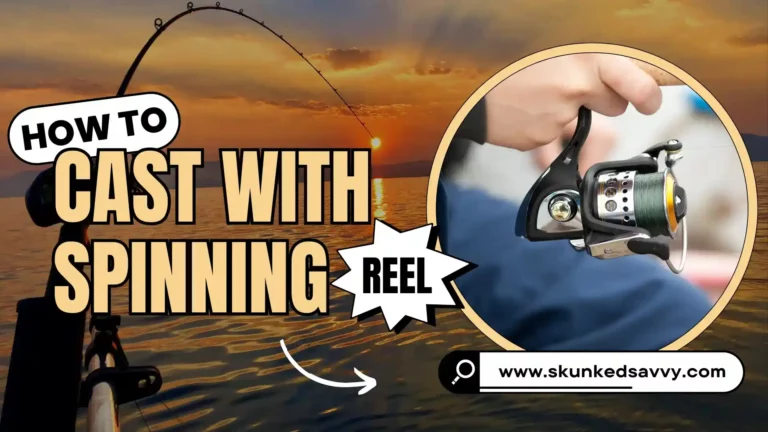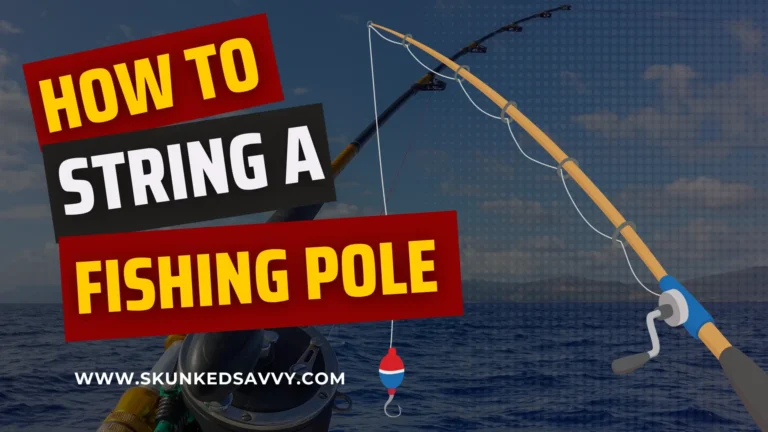Is Fishing Good for the Environment?
Fishing, a timeless pastime, hobby, and lifestyle, attracts people from the busy, chaotic life to the serene shores of rivers, lakes, and oceans. It reconnects people with nature and encourages them to reflect on the current state of the natural environment around them. However, many of us wonder about a question of vital importance: Does fishing contribute positively to the environment?
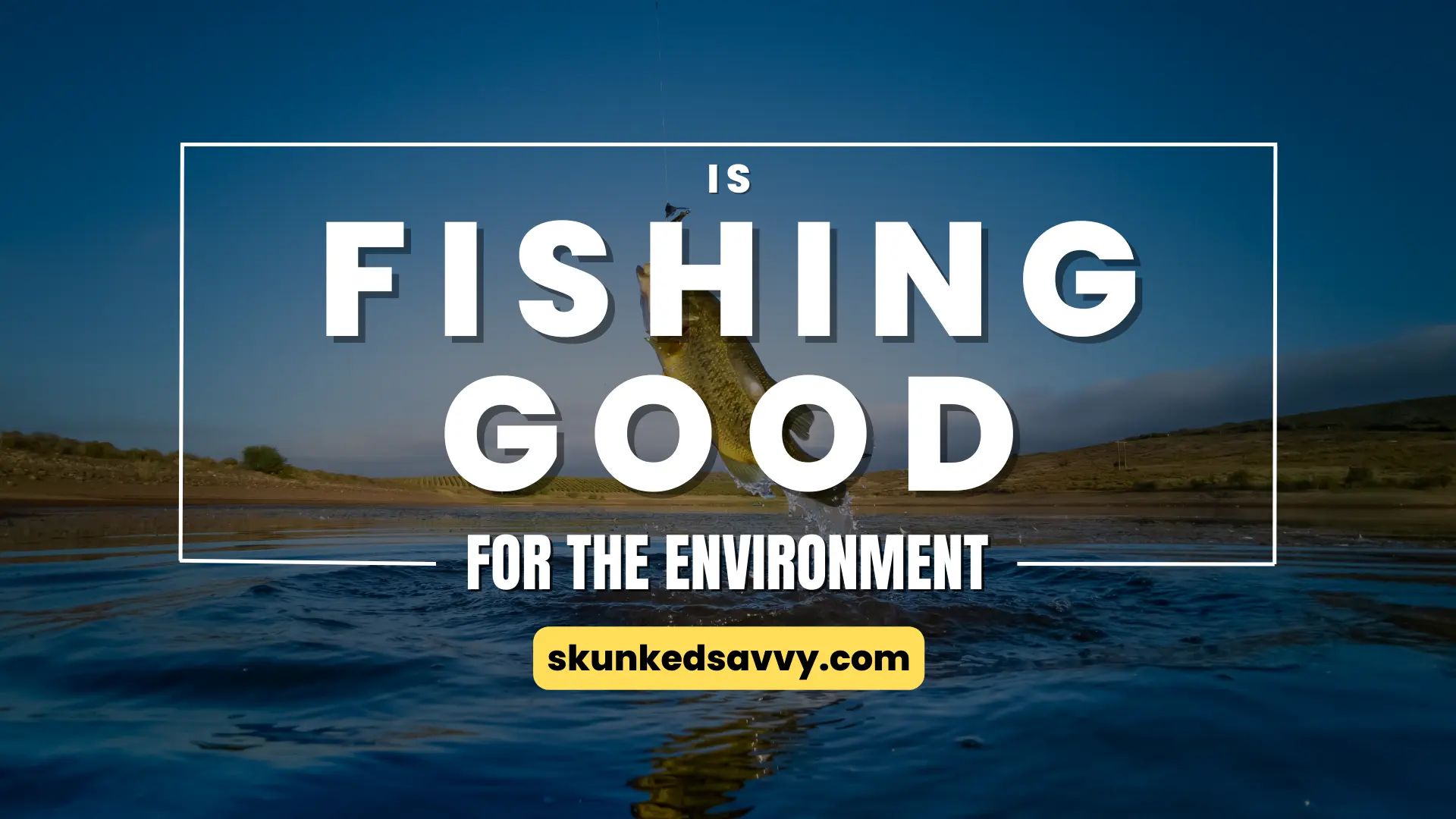
Fishing helps the environment in many ways, like preserving species by releasing fish back into water. As per my ten years of fishing experience it play an important role in maintaining a balance of the aquatic ecosystem if regulated properly. So, let’s unravel the multifaceted connection between fishing and the environment.
Is Fishing Good for the Environment?
Anglers have a deep connection with the environment and the water they fish in. The taxes they pay are used to support wildlife and the environment. Moreover, they are dedicated to preserving clean water and air to keep the aquatic environment healthy.
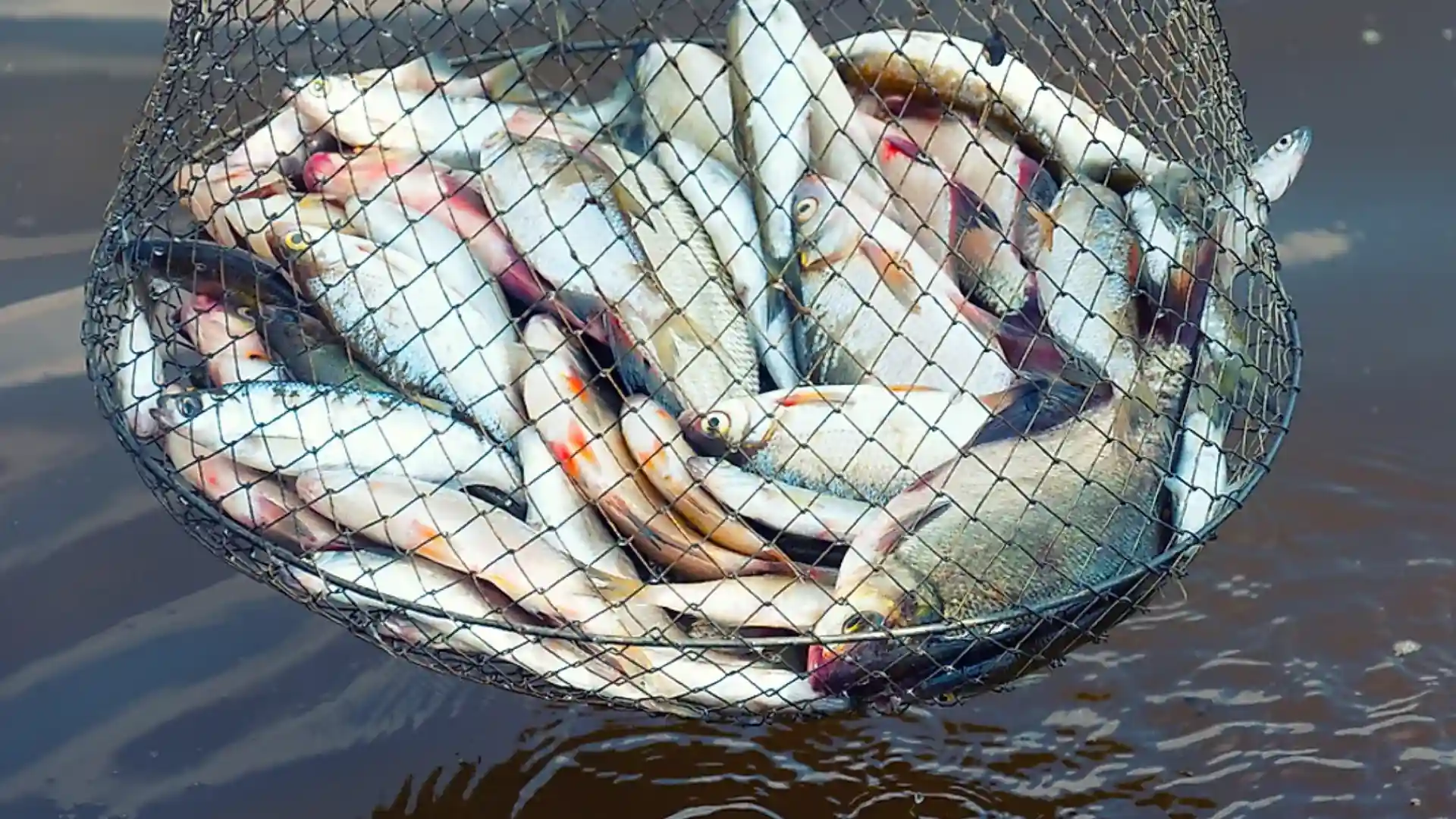
Angling and Environmental Protection
The relationship between anglers and the environment can be explained through Aldo Leopold’s comparison. The renowned American ecologist compared the harmony between people and the environment to friendship in which one cannot cherish one hand while harming the other. So, an angler cannot enjoy successful fishing without caring for the surrounding ecosystem.
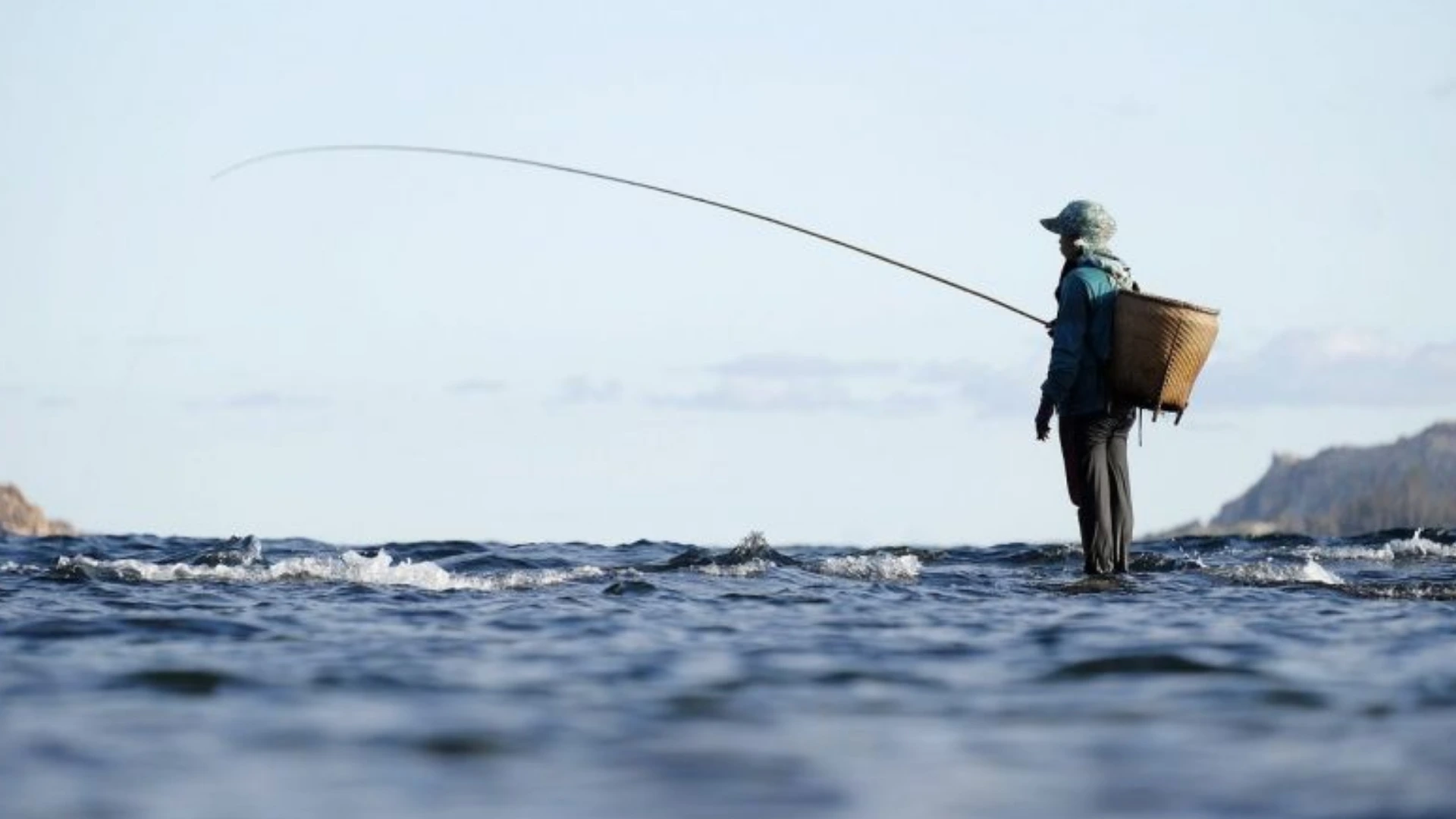
Protecting the ecosystem is extremely important for an angler to be able to continue good fishing. Therefore, the majority of anglers love and respect the aquatic environment and protect it at all costs.
Angling and Fisheries Conservation by Anglers
Important
Anglers act as custodians of the water they fish, noticing and reporting any pollution or other environmental issues that need to be solved.
Mostly, the fisheries and aquatic life research is initiated and stimulated by the anglers in that area. Moreover, anglers come in contact with water regularly and know about the population of certain fish species in a specific area. Here are the physical and mental benefits of fishing.
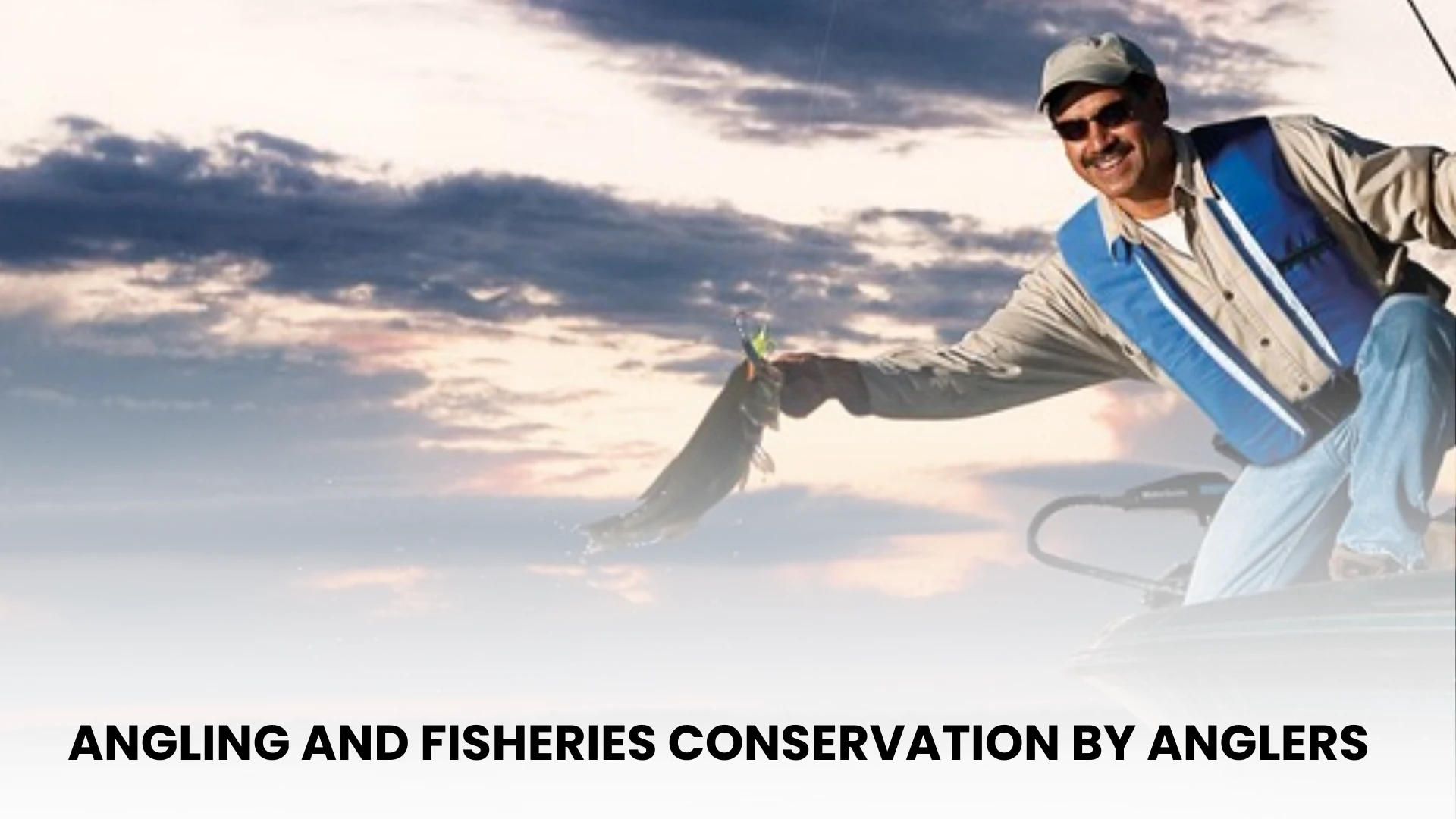
Ecosystem Balance
Important
When fishing is regulated properly, it can help maintain the balance of aquatic ecosystems.
By targeting species that are overpopulated or invasive, anglers can maintain a balance in the water. For instance, in Cambridgeshire, an invasive killer shrimp species got its way into Grafham Water reservoir.
Anglers were the first ones to spot it and promptly alerted authorities to contain the threat. Anglers also monitor water quality through invertebrates, which are sensitive indicators of toxic pollution in water.
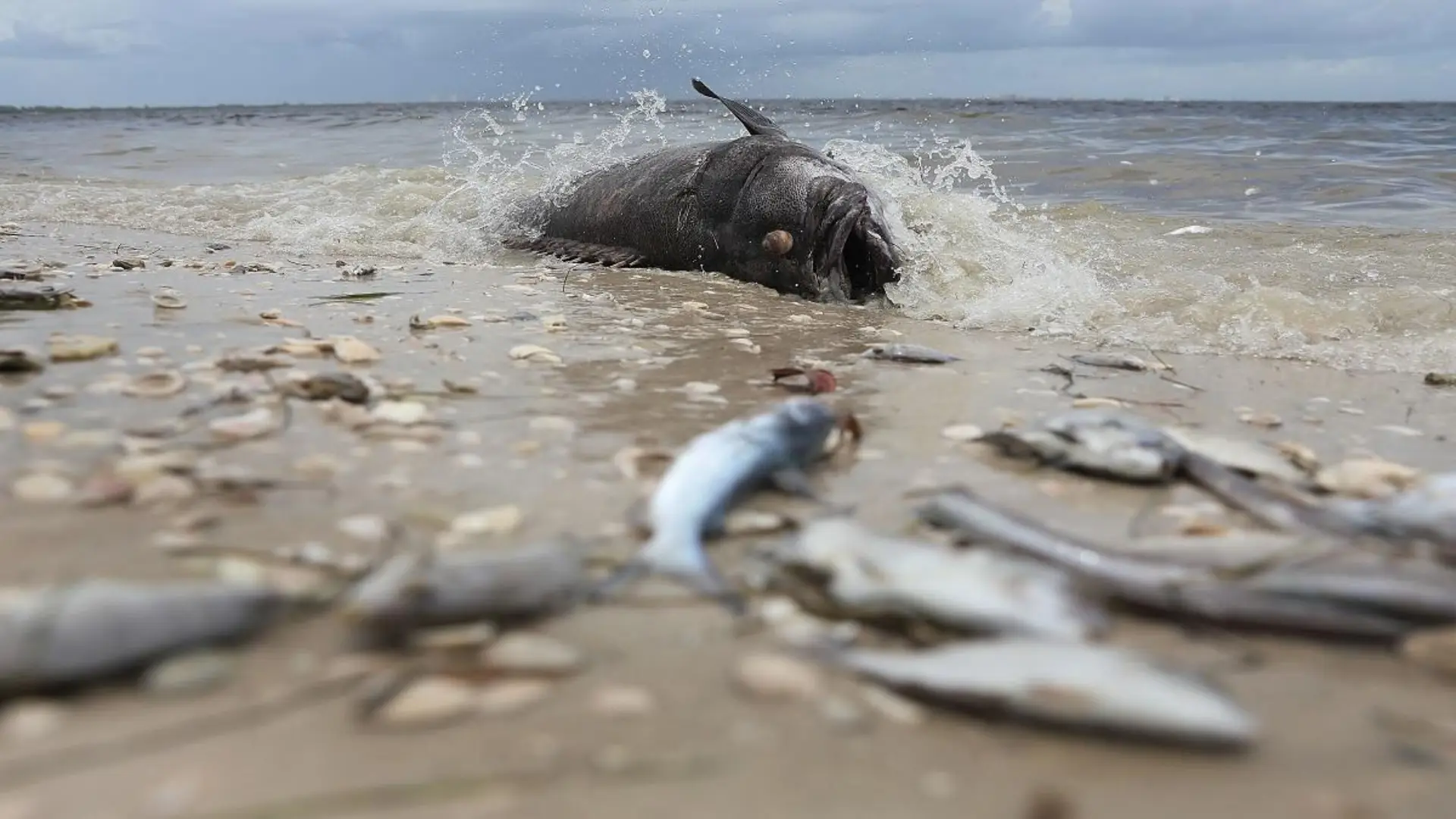
Moreover, if the anglers find these invertebrates in abundance, it signifies pollution incidents and helps scientists and environmental agencies to come up with a solution to maintain water quality.
When a certain species is declining, anglers help by participating in fisheries research and collecting data. Furthermore, they conduct habitat restoration work and work on protecting that specific species.
The Positive Impact of Modern Recreational Fishing on the Environment
Most of the items in our daily usage are easily accessible, and in our modern lives, we take their origin for granted. However, fishing is the only activity that offers a stark contrast to this disconnect and connects us directly to our natural environment, which is not infinite and needs to be protected. Therefore, anglers spread awareness regarding these issues and willingly embrace the regulations and guidelines set forth for responsible fishing.
Anglers usually return empty-handed from their favorite fishing spots, which is a poignant reminder of the damage to our aquatic environment.
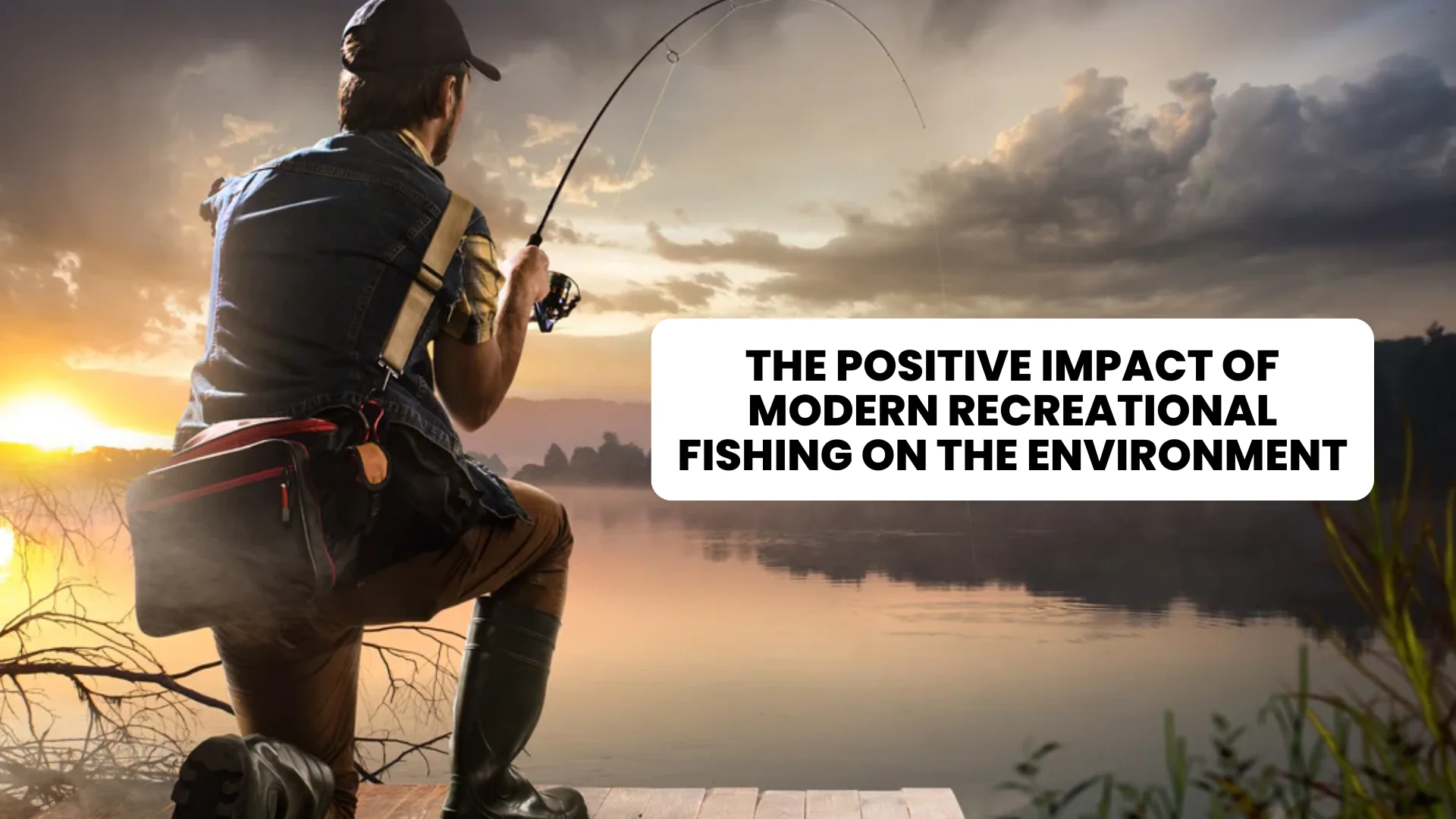
This influences immediate action and forces them to follow the sanctions and rules imposed by the fishing community to protect against further damage. Likewise, recreational fishing promotes sustainability and gives the anglers motivation and passion to keep the environment safe.
Anglers directly observe their influence on marine life because they get first-hand experience as they go fishing. Therefore, their consciousness extends beyond fishing and prompts a broader consideration of environmental impact. Ultimately, when we immerse in the fishing experience, we adopt all the values and behaviors that compel us to follow sustainable fishing practices.
Is Fishing Bad for the Environment?
While fishing can be a source of enjoyment and help the environment, it is vital to understand how it can have adverse effects on our environment. Like any other human activity, excessive fishing leads to many harmful effects on our environment. Moreover, here are a few of the reasons why excessive and unregulated fishing can be bad for the environment.
Overfishing and Depletion of Fish Stocks
One of the most pressing concerns in the fishing industry is the depletion of fish species due to overpopulation. Commercial and recreational fishing activities usually target popular and valuable species, leading to the decline of their population. Furthermore, studies suggest the world will run out of seafood in 2048, and oceans will no longer have any fish left.
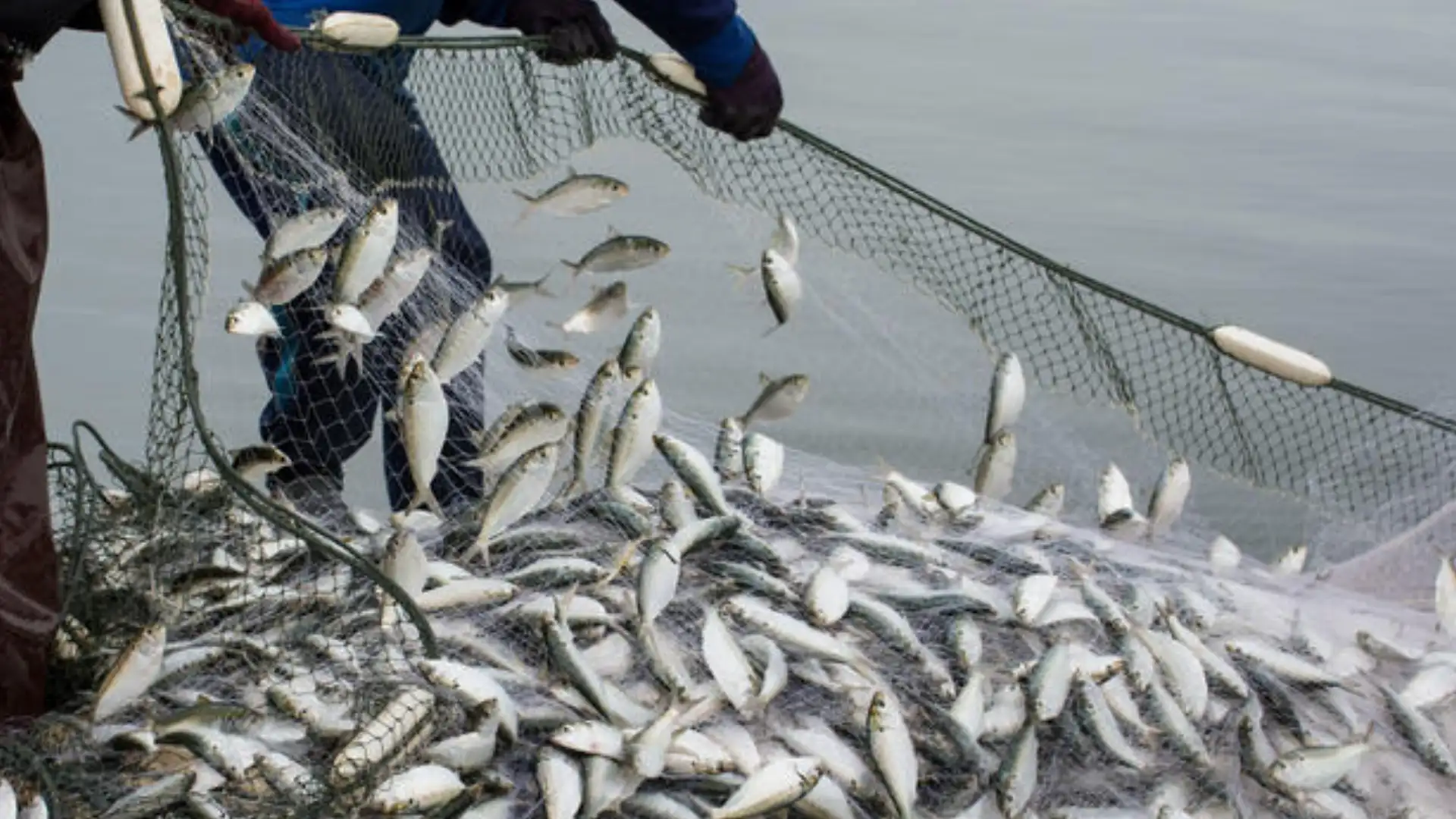
Recreational fishing is not mainly responsible for this because these anglers are working alongside regulators to promote sustainable practices. Commercial fishing is mostly to be blamed as they catch enormous quantities of fish annually. Moreover, the demand and consumption of fish per capita has increased rapidly.
Bycatch and Unintended Consequences
Catching the non-target unintentional species like turtles, dolphins, and seabirds along with the intended catch is another significant issue that can be bad for our environment. These fish can be killed or injured during bycatching, leading to a negative impact on biodiversity. Moreover, bycatch also includes the immature babies of the target fish species, which can also decrease their chances of survival.
Pollution and Waste
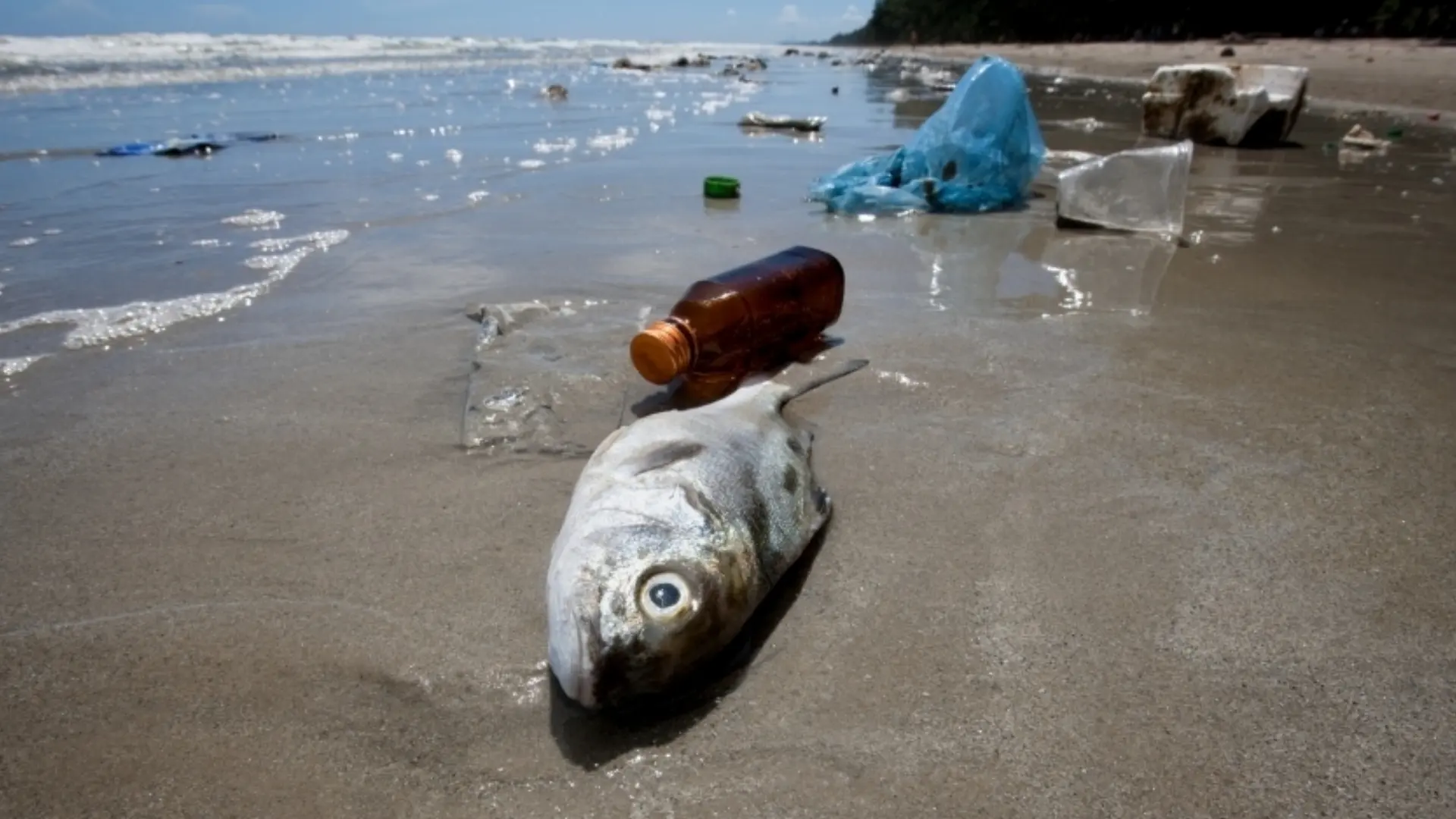
Fishing can be the biggest source of water pollution. The oil and fuel from fishing vessels end up in the sea and can become a threat to marine life. Furthermore, discarded fishing gear like nets, traps, and lines continue to kill marine life even when the anglers discard them, which leads to ghost fishing.
Altered Food Webs
Excessive and unregulated fishing leads to alternations in the natural food web in aquatic ecosystems. If a top predator is wiped out completely, their prey species can overpopulate, which influences the overall structure and function of the ecosystem. Moreover, it leads to the overpopulation of one species and the decline of another.
Regulations and the Role of Anglers
To combat such challenges, fishing regulations are put in place to prevent overfishing. To protect vulnerable fish populations or species that are leading toward a decline, the government designed some limits like size restrictions, seasonal closures, and catch limits. Moreover, it is crucial to follow these rules and regulations.
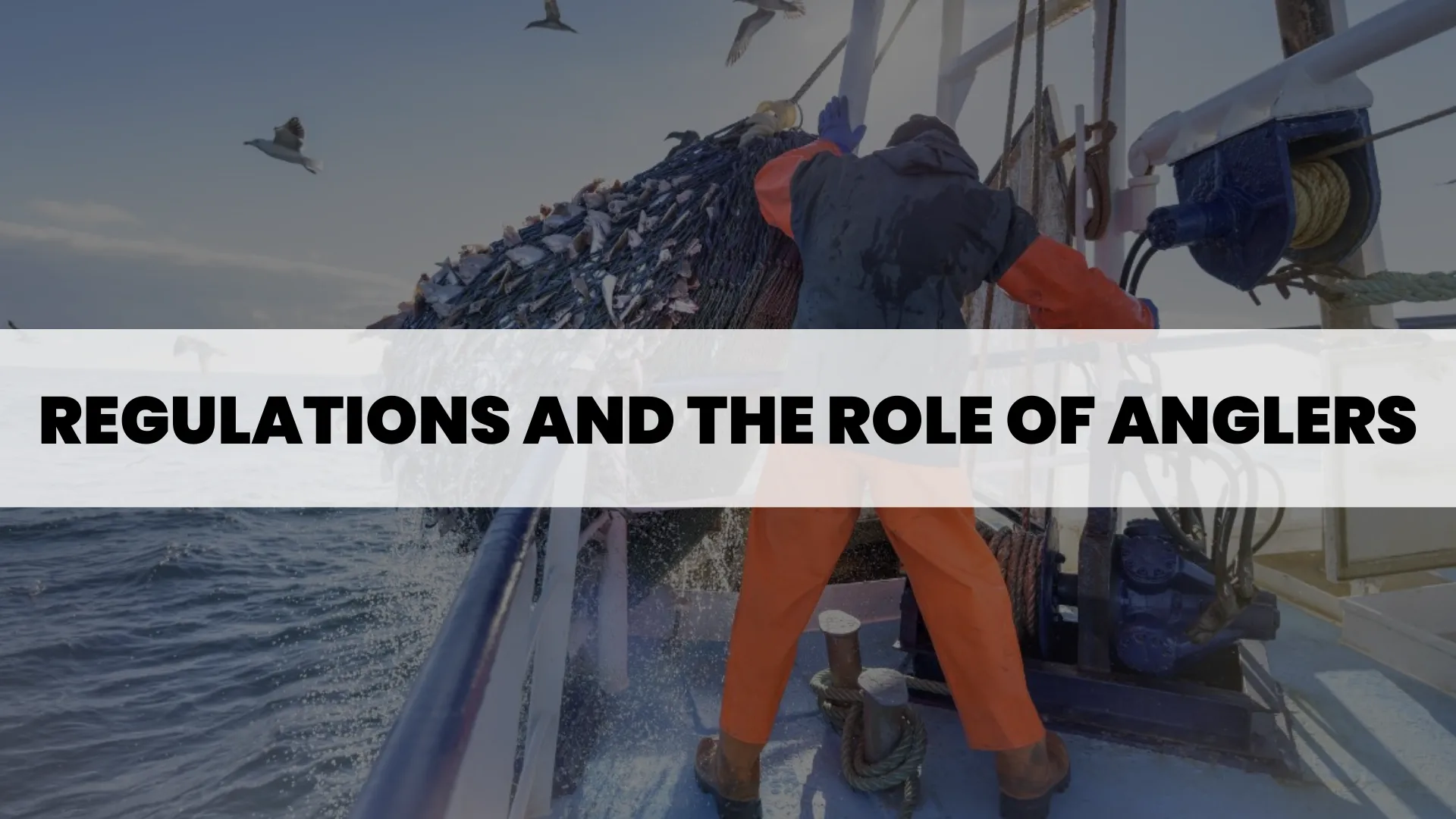
It is everyone’s responsibility to educate themselves and others on these regulations and follow them religiously. Ultimately, it can result in the conservation of our environment, fish species, and water.
Responsible Actions as an Angler
Many of the anglers are already following these regulations and releasing the catch that is illegal to fish. Research shows that 90% of these fish survive when released back into the water. Furthermore, an estimated amount of 30 million fish are released annually, which means the 39 million non-target fish would have otherwise died unintentionally if not released.
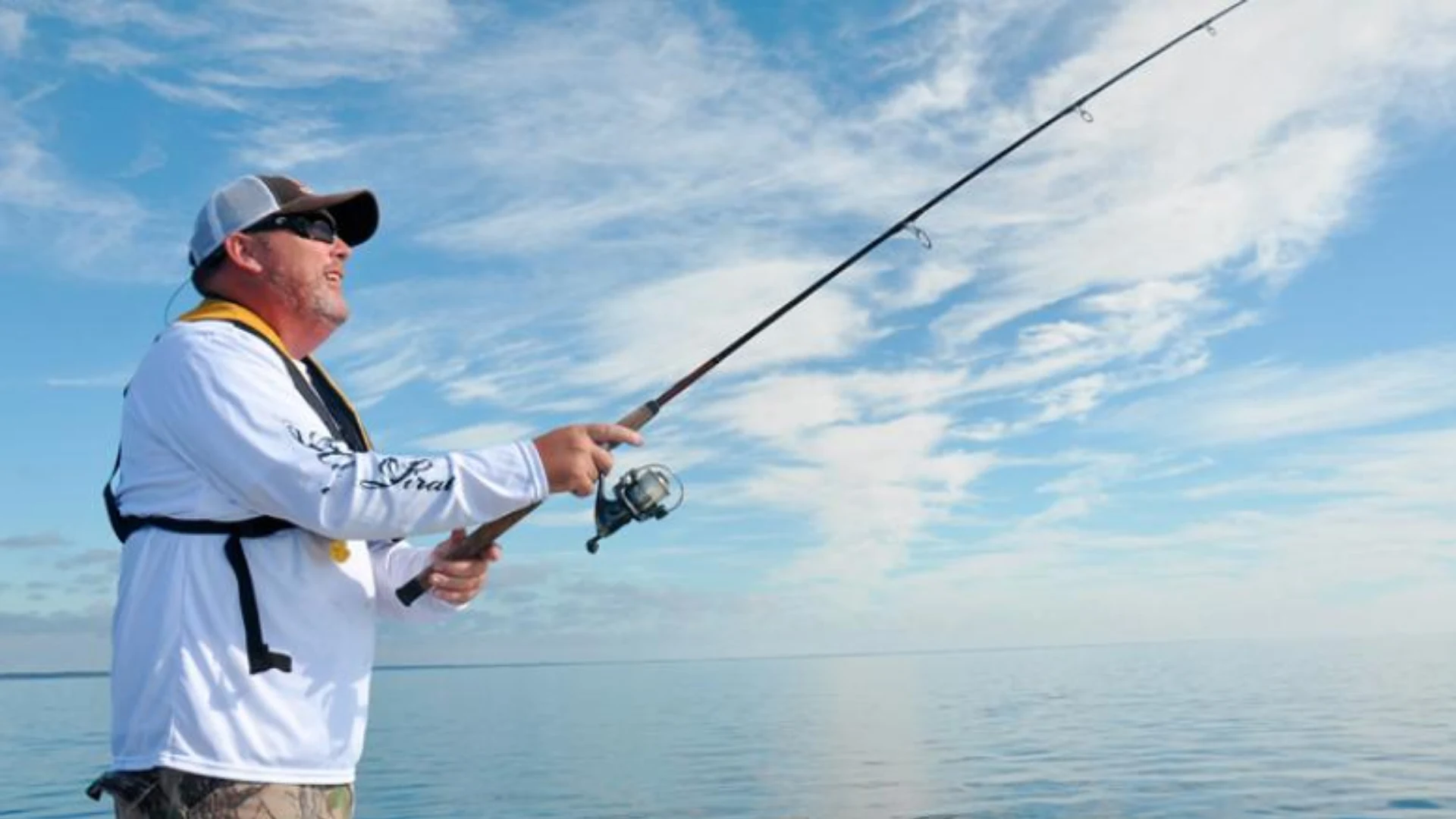
It is a massive amount of fish released to breed and increase fish population. However, you can further enhance their chances of survival by releasing by adopting the following practices;
- Educate yourself on how to handle fish properly, especially the non-target fish that are intended to be released.
- Learn about techniques on how to return the deep water fish to their appropriate depth in water because if you leave them on the surface of the water without any strategy, their chances of survival will decrease.
- Reevaluate and reduce the use of hooks that may cause greater harm, such as J-style hooks, treble hooks, and barbed hooks.
- Use heavier line classes to minimize the time required to catch a fish, which can reduce exhaustion.
Importance of Releasing Trophy Fish
Research has proven the significance of returning trophy fish or mature and larger fish back to sea while retaining the smaller ones. Larger fish are more prolific breeders and can carry essential genes for survival. Moreover, if we start keeping all the trophy fish while leaving the smaller ones, we will eliminate these vital genetics from the gene pool.
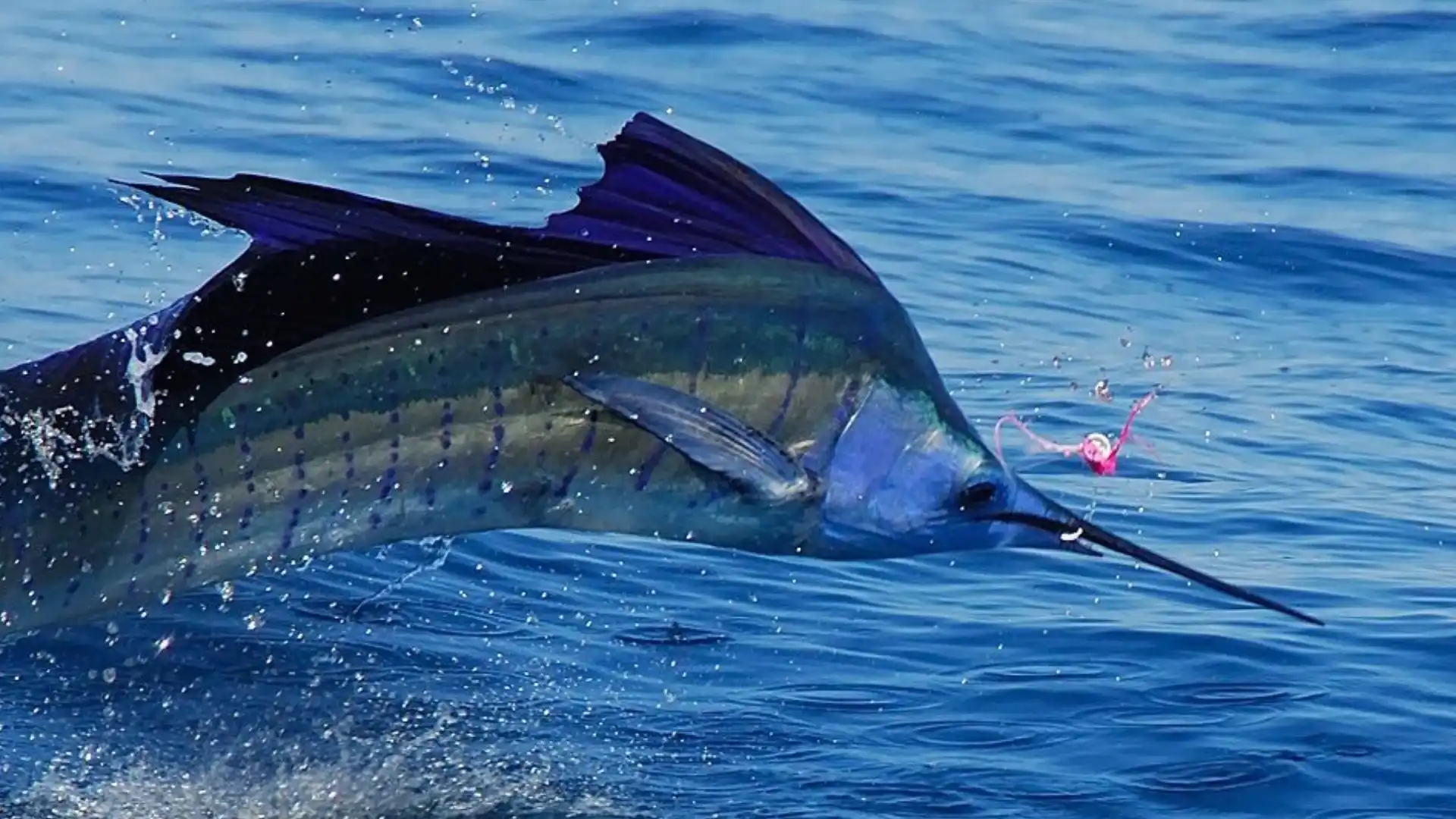
Anglers have a responsibility to learn how to assess the age of a fish and ensure the safe return of trophy fish. This is especially essential to be practiced in closed waters where migratory fish cannot enter.
Habitat Protection and Conservation
It is important to leave no trace after fishing, such as small offcuts of fishing lines, traps, lead sinkers, and fishing hooks. You need to avoid heavy foot and vehicular traffic and ensure that your boats and equipment are free from fuel and oil leakage.
Pro Tip
There are over 700 million anglers worldwide, and taking precautions to protect aquatic animals’ habitats can have a significant impact on protecting the environment.
FAQs
What are the disadvantages of fishing?
Commercial fishing has many disadvantages, including bycatch, entanglement of larger animals, habitat damage, decline in fish species, ghost fishing, etc.
What are the benefits of sustainable fishing?
Sustainable fishing leads to less waste, reduces pollution and the use of chemicals that can damage the ozone layer, and minimizes energy consumption.
Final Words
In short, recreational fishing has the potential to be sustainable and beneficial for the environment, but this industry’s future still largely depends on angler’s responsible actions. It is crucial to understand the positive and negative impact of fishing on the environment, take all the precautions, and follow the regulations imposed to maintain sustainable fishing practices. So, every angler needs to take responsibility to ensure that the relaxing and joyful pastime of fishing exists harmoniously with the conservation of our aquatic environment.

